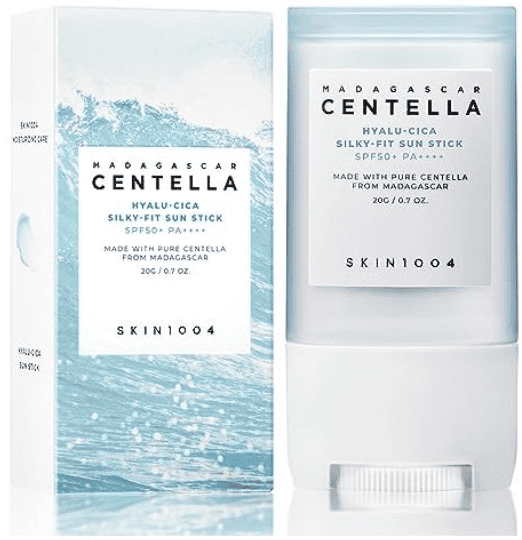Best Sunscreen For Black Women In 2024
Sunscreen Debunked: What Dark Skin Should Really Look for in Sun Products
Are you tired of trying different sunscreen brands only to find that none seem to be working for you? Whether they irritate your skin, make you darker, or leave a white cast. Finding the perfect sunscreen can be frustrating, especially for individuals with darker skin tones. But fear not!
In this blog post, you’ll get all the essentials of sunscreen for dark skin and recommendations to help you find the perfect sun protection products for your beautiful dark skin.
Understanding Sunscreen Basics
Before we get into the specific recommendations, let’s start with the basics. As a person with dark skin, you naturally have melanin, which provides some level of sun protection.
However, melanin alone may not be sufficient to protect against skin cancer, sunburn, and premature ageing caused by UV radiation.
Did You Know…
“Naturally darker-skinned people have more eumelanin and naturally fair-skinned people have more pheomelanin. While eumelanin can protect the skin from sun damage, pheomelanin does not.
That’s why people with darker skin are at lower risk for developing skin cancer than fair-skinned people who, due to lack of eumelanin, are more susceptible to sun damage, burning and skin cancer. But, skin cancer can happen to anyone, regardless of skin tone”.
(skincancer.org)
The Importance of Sunscreen Year-Round
Contrary to popular practice, sunscreen isn’t just for summer. UV radiation can penetrate clouds and windows. This means you need sun protection year-round, during daytime, regardless of the weather.
UVA and UVB rays can lead to skin damage, so wearing sunscreen daily is essential for maintaining healthy skin.
Many of us struggle with hyperpigmentation. We want a more even skin tone, and we want our skin to look young and glowy. If you want all of that, you do need to use sunscreen.
Do People Wear Sunscreen In Africa?
I’m from Nigeria and wearing sunscreen daily is still a relatively new practice amongst the young demographic. Most older adults are yet to catch up with the importance and significance of using sunscreen.
Choosing the Right Sunscreen
When selecting a sunscreen, there are several factors to consider. These four factors should be considered when choosing a sunscreen.
- Look for a broad-spectrum sunscreen that protects against both UVA and UVB rays.
UVA and UVB are what causes skin burn and skin aging. UVA penetrates our body deeper (into the dermis), than UVB. Which causes skin wrinkles and faster ageing of the skin. While UVB rays penetrate your epidermis, and they cause skin burn.
B for burn, and A for ageing.
The best sunscreens to use are the ones that target both of these rays, and they are called broad-spectrum sunscreens.
2. Look for the SPF factor rating. SPF stands for Sun Protection Factor.
When you look at sunscreens, they’ll tell you SPF 30, SPF 50, SPF 80. Some even go as high as SPF 100. The higher the SPF, the more protection you get. But you don’t need to go for SPF 100.
As a dark-skinned person, aim for SPF 50 to 70 for optimal protection.
3. Look out for the texture of the sunscreen. Some retail stores allow you to try them on.
There are different sunscreen textures: liquid, cream, gel, stick, powder or lotion. The texture you choose should depend on your skin type and practicality.
If you have oily skin, you want a gel or a liquid sunscreen. But if you have dry skin, you want a cream or a lotion sunscreen.
4. Look at the ingredients in the sunscreen. The ingredients formulated in a sunscreen classifies it into 3 main sunscreen categories: Mineral, chemical, and hybrid sunscreen.
Types of Sunscreens
1. Mineral sunscreens, also called physical sunscreens, contain ingredients like zinc oxide and titanium dioxide, which sit on the skin’s surface and reflect UV rays. While effective, mineral sunscreens do leave a white cast, especially on darker skin tones.
An exception to this is tinted mineral sunscreen. If the tint colour matches well with your skin tone, it does a decent job of masking the white cast. Some people prefer mineral sunscreen due to health concerns like safety during pregnancy.
As a dark-skinned girl, I find some mineral sunscreens don’t have much white cast, and it cover well with my foundation.
2. Chemical sunscreens, on the other hand, absorb UV radiation and convert it into heat, making them less likely to leave a white cast. However, some individuals may experience irritation, sweat, or sensitivity to certain chemical sunscreen ingredients.

Sun stick perfect for sensitive face
3. Hybrid sunscreens combine both mineral and chemical filters to offer broad-spectrum protection with minimal white cast. These formulas are increasingly popular for their effectiveness and versatility.
Recommendations for Dark Skin
For individuals with dark skin, finding the right sunscreen can be challenging due to concerns about white cast and skin sensitivity. Here are some recommended sunscreens for black skin:
- Mineral Sunscreens: Look for products with a higher percentage of zinc oxide, which provides effective sun protection without leaving a noticeable white cast. Some recommended brands include Mineral Face Stick Sun Bum and ISDIN Mineral Sunscreen Broad Spectrum spf 50.
- Chemical Sunscreens: Opt for formulas that are lightweight and non-greasy, such as Supergoop everyday spf 50, LaRochePosay ultra fluid invisible finish, Centella Madagascar Water fit and Neutrogena Sheer Spray Sunscreen. These products offer broad-spectrum protection without the risk of white cast.
- Hybrid Sunscreens: Consider trying hybrid formulas which combine the benefits of both mineral and chemical sunscreens. These products are effective and have no white cast, making them suitable for daily use. A good on is Black girl hybrid sunscreen.
Application Tips
To get the most out of your sunscreen, apply it generously and reapply every two hours, especially when outdoors.
Keep a travel-size sunscreen in your handbag for convenient touch-ups throughout the day. Remember to check the expiration date of your sunscreen and discard any expired products to ensure efficacy and safety.
Lastly, when you’re applying your sunscreen, make sure you apply it 15 to 30 minutes before you step out into the sun. And when you’re applying it, make sure you apply it evenly on your skin.
Conclusion
While finding the perfect sunscreen for dark skin may require some trial and error, the key is to prioritize sun protection and consistency. By understanding your skin’s needs and choosing the right sunscreen formula, you can enjoy the benefits of sun protection without compromising on appearance or comfort. So, embrace the sunscreen lifestyle and keep shining!
Watch On Youtube
If you found this blog post helpful, share your thoughts in the comments below. Also subscribe to our free newsletter for black girl tips on beauty, self-care and entrepreneurship.
Thank you for reading, and until next time, stay sun-safe and shiny!
Remember, your beautiful melanin skin also needs sun protection.
Thisistinuola
Reference:
Allan H., Ashfaq M., & Ofer R. 2022 January. Melanoma Overview. Skincancer.org. https://www.skincancer.org/skin-cancer-information/melanoma/#four

One Comment
Comments are closed.